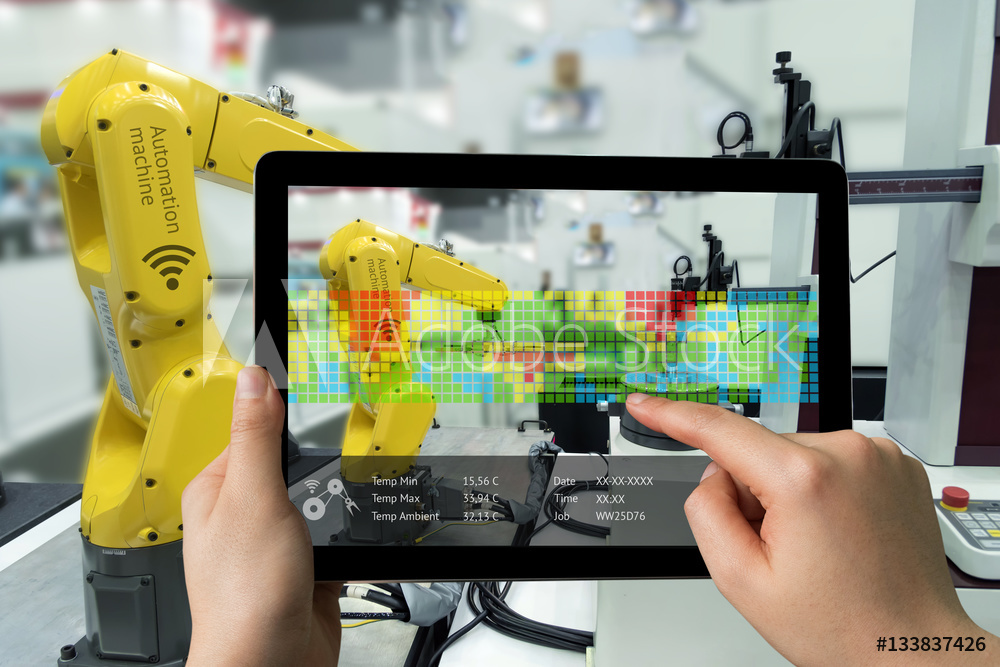Always considered a traditional industry, the ceramic manufacturers depended greatly on manual labor for centuries to create products. Nevertheless, lots of companies are recognizing the advantages of incorporating technology into their processes, revitalizing the industry and also creating better products.
But the inclusion of technology has not always been easy since this industry is a complex one, with lots of materials, processes, and knowledge that comes together to create different ceramic products. Depending on the type of products in which the company specializes and also the brand, the number of stages and materials needed may vary.
Besides the differences in the production between brands, all of the ceramic industry can profit from the digital transformation that comes with the application of 4.0 industry measures within the company. Mostly, the implementation of industry 4.0 can influence the digital ecosystem, security and safety, and digital sustainability.
Also known as the fourth industrial revolution or the Industrial Internet of Things (IIoF), the 4.0 industry grants the mostly traditional ceramic industry with great technological changes that will improve both the production and also the worker’s effort, making the company more efficient and modern through the incorporation of intelligence to physical objects.
Despite the fact that the digital transformation can provide great benefits and results, a low percentage of the industry has adopted this trend, even though it is estimated to rapidly grow over the next years. This rejection is based on the idea that the ceramics industry, being traditional and based on manual techniques, will be difficult to modernize through technology.
But certainly, this isn´t true, as the digital transformation can be adapted to all of the industries in the market, even to the ones that have a great amount of manual labor in their production as the industrial ceramic products.
As flexible as it is, the 4.0 industry is also a complicated trend to adopt, since there are no set rules or steps to follow; all of the measures must be customized specifically to each company depending on its products, goals, size and production chain. Experts recommend to define one goal at a time and then study which plan would help that purpose.
Considered to be a cooperative evolution between areas in the company, the 4.0 industry includes all of the strategies that lead to the digital transformation. This changes can be as small or big as the company wants, facilitating its implementation and making possible to obtain a gradual modernization of the industry.
Although many of the implementations of the digital transformation include adding technology this not always means only changing machines and components, but also letting these changes influence in time and resources optimization, and augment work efficiency. In industry 4.0, technology also helps to create a connection between devices through networks and the cloud, to incorporate automated functions, improve the cybersecurity, replace certain tasks with robots or even artificial intelligence.
These are only just a few of the objectives that a company could pursue with the implementation of this digital transformation, perceiving profits both in the short and long term, for its products, workers and also clients. Also, there is a huge trend to use these measures to improve the design of the industrial ceramic products, looking for new materials, colors and design tools, as well as taking care of the environment choosing more sustainable materials or processes.
As we mentioned, this plan will vary for each company, since they need to be specifically designed towards the goal that the brand is pursuing. But without a doubt it can provide a great benefit for the ceramic industry, helping them to resolve some of the biggest problems these companies have.
Incorporating 4.0 industry into a ceramics company could help with the manufacturing process and costs, that tend to be complex and expensive due to the number of steps, materials, and manpower needed. Also, time management tends to be a problem in these industries, one that can be resolved with some technological applications. On the other hand, incorporating the digital transformation to the design process results in better and innovative products, that could compete better in the market.
Any other industry can gain from the industry 4.0, and surely the ceramic production won’t be an exception. It is an industry that can perceive great advantage from these measures due to the number of stages in their production, their complicated sourcing of different materials and also having the possibility to improve their products in design.
Completely changing the industry, this digital transformation is looking to blend industrial processes with technology that provides companies with better economic results, but also being more effective in their work and have a superior production. The adoption of 4.0 industry measures is very beneficial for the ceramic industry, solving much of their big problems and revitalizing the industry as a whole.











